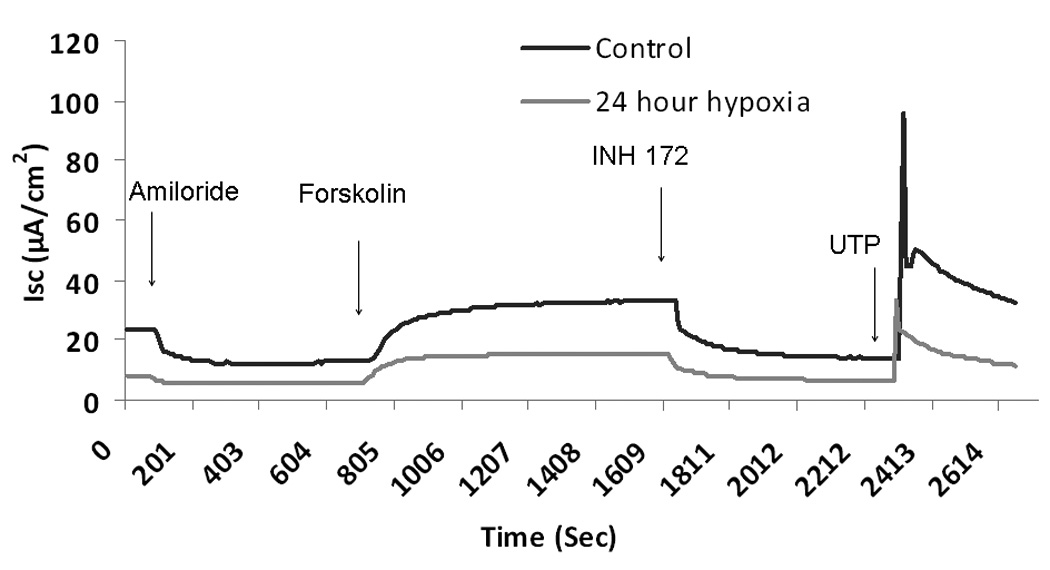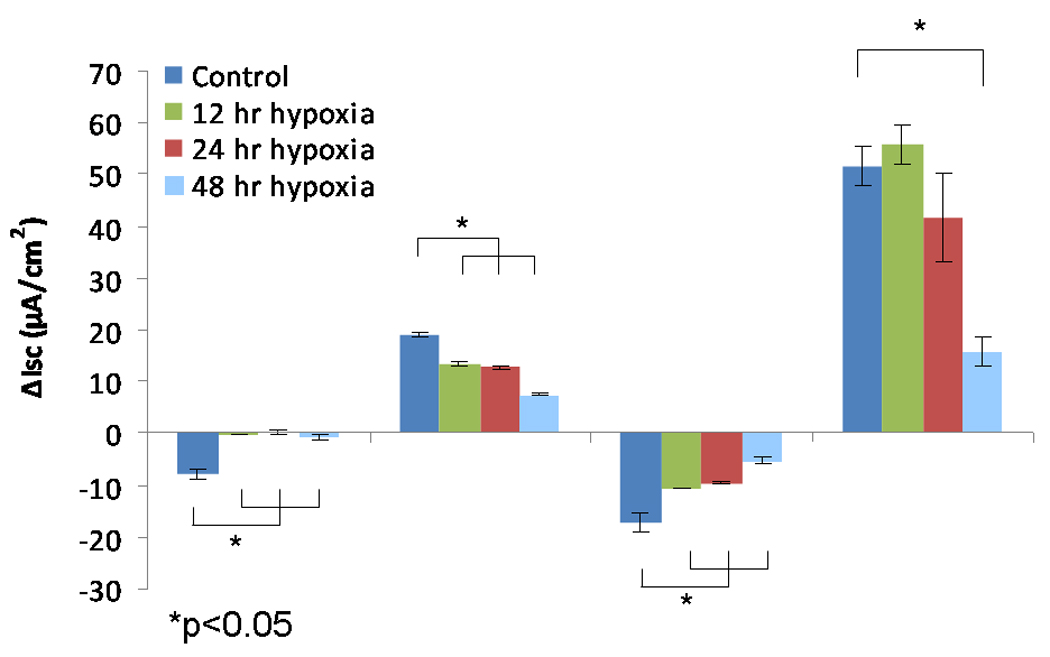Figure 1.


A. Representative ISC tracing of wild type murine nasal septal epithelial (MNSE) cultures. Wild type MNSE cells grown on transwell permeable supports and incubated in 1% O2 or physiologic O2 (control, 21%) were mounted in modified Ussing chambers under short-circuit conditions and sequentially exposed to amiloride (100µM); forskolin (20 µM); INH-172 (10 µM) and uridine triphosphate (UTP) (150 µM). By convention, a positive deflection in the tracing represents the movement of anion in the serosal to mucosal direction. Note the decrease in ISC in hypoxic MNSE (lower tracing) in all conditions compared to control (upper tracing).
B. Change in short-circuit current (ΔISC) in murine nasal septal epithelial cultures after 12, 24, and 48 hours under hypoxic conditions. Forskolin-stimulated ΔISC and CFTR blockade by INH-72 were significantly decreased compared to control (n ≥ 6 per condition). UTP-stimulated ΔISC was significantly inhibited at 48 hours.
